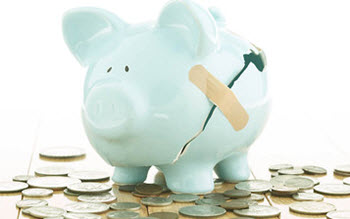Distressed securities are securities where the issuer (usually a company or a government) is in financial or operational distress. The issuer will typically carry a rating of CCC or worse from Standard & Poor, Moody, Fitch, and similar agencies.
 Investing in distressed securities is considered high-risk, since there is often an imminent risk of bankruptcy or similar that will render the securities worthless. Distressed securities can still be a good addition to an investment portfolio, since they tend to trade at a substantial discount to their intrinsic value or par value. Firms that specialize in investing in distressed securities (especially distressed debt) are often somewhat disparagingly referred to as vulture funds.
Investing in distressed securities is considered high-risk, since there is often an imminent risk of bankruptcy or similar that will render the securities worthless. Distressed securities can still be a good addition to an investment portfolio, since they tend to trade at a substantial discount to their intrinsic value or par value. Firms that specialize in investing in distressed securities (especially distressed debt) are often somewhat disparagingly referred to as vulture funds.
Large institutional investors are often not allowed to purchase or even retain severally distressed securities, which helps to further decrease these price of these securities. There are however quite a few exceptions, i.e. large institutional investors that do not have bylaws or similar preventing them from owning distressed securities. Some of them will even utilize sophisticated risk management resources to actively invest in distressed securities.
When large investment companies invest in distressed securities, they will often aim to influence the future of the issuer, e.g. by influencing the way the issuer restructures its debt. Sometimes the investment company will inject new capital (debt or equity) into a distressed company, if certain conditions stipulated by the investment company are fulfilled, e.g. when it comes to change of focus for the company.
This article was last updated on: January 18, 2016